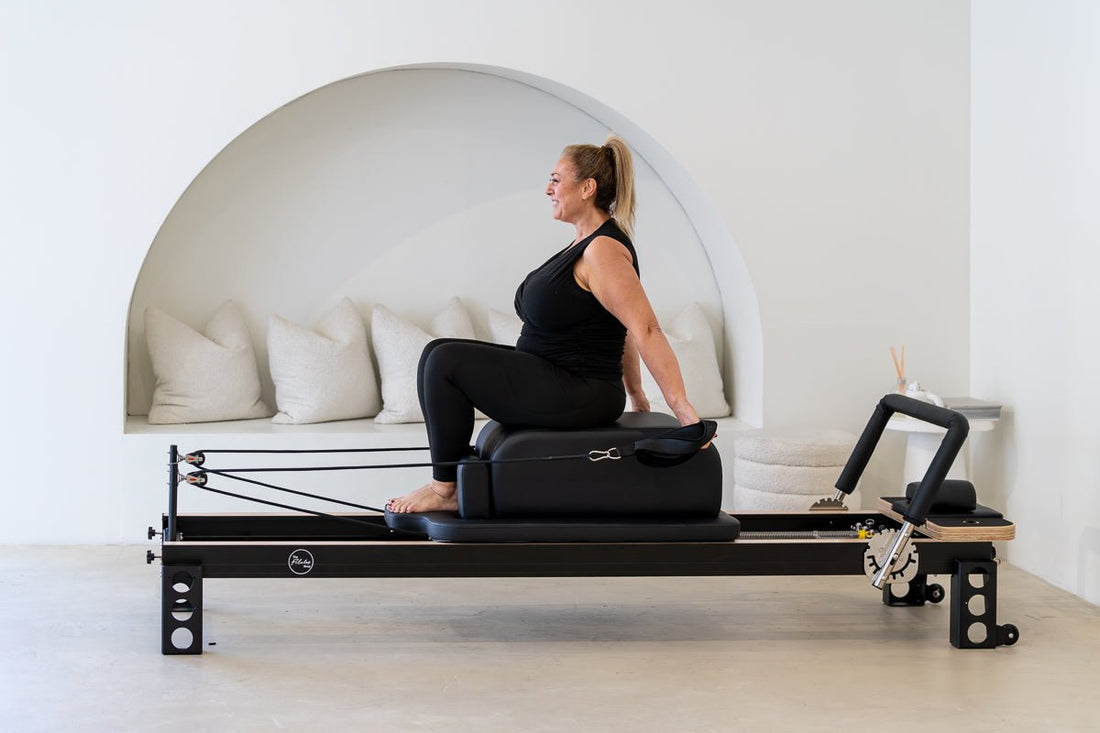In today's fast-paced world, stress and anxiety have become common issues affecting many people. While there are numerous strategies to manage these mental health challenges, one powerful and often overlooked method is the practice of Pilates. Known for its physical benefits, Pilates also offers significant mental health advantages. This article explores how regular Pilates practice can boost your mood, reduce stress, and enhance overall mental well-being.
The Mind-Body Connection in Pilates:
Pilates is a mind-body exercise that emphasizes controlled movements, proper breathing, and mindfulness. This holistic approach can profoundly impact mental health by:
-
Reducing Stress and Anxiety:
- Pilates encourages deep, mindful breathing, which activates the parasympathetic nervous system. This helps reduce stress hormones like cortisol, promoting relaxation and reducing anxiety levels.
-
Improving Mood:
- Physical activity, including Pilates, stimulates the production of endorphins, the body’s natural mood lifters. This can lead to a more positive outlook and improved emotional well-being.
-
Enhancing Mindfulness:
- Pilates requires focus and concentration on movements and breath, fostering mindfulness. This can help calm the mind, reduce negative thought patterns, and increase overall awareness.
-
Boosting Self-Esteem:
- As you progress in your Pilates practice, you'll notice improvements in strength, flexibility, and posture. These physical changes can boost self-esteem and confidence, contributing to better mental health.
-
Promoting Better Sleep:
- Regular Pilates practice can improve sleep quality by reducing stress and promoting relaxation. Better sleep is crucial for mental health, helping to regulate mood and reduce anxiety.
Pilates Exercises for Mental Health:
Here are some specific Pilates exercises that can help boost your mood and reduce stress:
-
The Hundred:
-
How to Do It:
- Lie on your back with your knees bent and shins parallel to the floor (tabletop position). Lift your head, neck, and shoulders off the mat. Extend your arms by your sides and pump them up and down as you inhale for five counts and exhale for five counts. Repeat for ten breaths (100 pumps).
-
Benefits:
- This exercise increases blood flow, warms up the body, and promotes deep, rhythmic breathing, which can help calm the mind and reduce anxiety.
-
How to Do It:
-
Roll-Up:
-
How to Do It:
- Lie on your back with your legs extended and arms reaching overhead. Inhale to prepare, then exhale as you slowly roll up to a seated position, reaching for your toes. Inhale to hold, then exhale as you roll back down. Repeat 5-10 times.
-
Benefits:
- The Roll-Up stretches the spine, promotes flexibility, and encourages mindfulness through controlled movement and breath.
-
-
Cat-Cow Stretch:
-
How to Do It:
- Begin on your hands and knees in a tabletop position. Inhale as you arch your back (cow pose), lifting your head and tailbone. Exhale as you round your spine (cat pose), tucking your chin and tailbone. Repeat for 10 breaths.
-
Benefits:
- This stretch mobilizes the spine, releases tension, and promotes a sense of calm through rhythmic movement and breath.
-
-
Child’s Pose:
-
How to Do It:
- Kneel on the floor with your big toes touching and knees apart. Sit back on your heels and extend your arms forward, resting your forehead on the mat. Breathe deeply and hold for 1-2 minutes.
-
Benefits:
- Child’s Pose promotes relaxation, stretches the back, and helps reduce stress and anxiety.
-
-
Spine Stretch Forward:
-
How to Do It:
- Sit tall with your legs extended straight in front of you, feet flexed. Inhale to lengthen your spine, then exhale as you hinge forward at the hips, reaching your hands towards your feet. Hold for a few breaths, then inhale to return to the starting position. Repeat 5-10 times.
-
Benefits:
- This stretch helps release tension in the spine and hamstrings, promoting relaxation and flexibility.
-
Tips for Incorporating Pilates into Your Routine:
- Set Aside Time: Dedicate a specific time each day for your Pilates practice. Even a short 15-20 minute session can make a difference in your mental health.
- Create a Calming Space: Practice Pilates in a quiet, clutter-free area where you can focus and relax.
- Focus on Breath: Pay attention to your breath during each exercise. Deep, mindful breathing can enhance the calming effects of Pilates.
- Stay Consistent: Regular practice is key to experiencing the mental health benefits of Pilates. Aim to practice several times a week for the best results.
- Listen to Your Body: Pilates should never cause pain. Modify exercises as needed and focus on what feels good for your body.
Conclusion: Embrace Pilates for Mental Well-Being
Pilates offers a holistic approach to improving mental health through its emphasis on controlled movements, deep breathing, and mindfulness. By incorporating regular Pilates practice into your routine, you can reduce stress, boost your mood, and enhance overall mental well-being. Whether you’re a beginner or an experienced practitioner, the benefits of Pilates for mental health are profound and far-reaching. So, roll out your mat, take a deep breath, and start your journey towards a calmer, happier, and healthier mind with Pilates.

